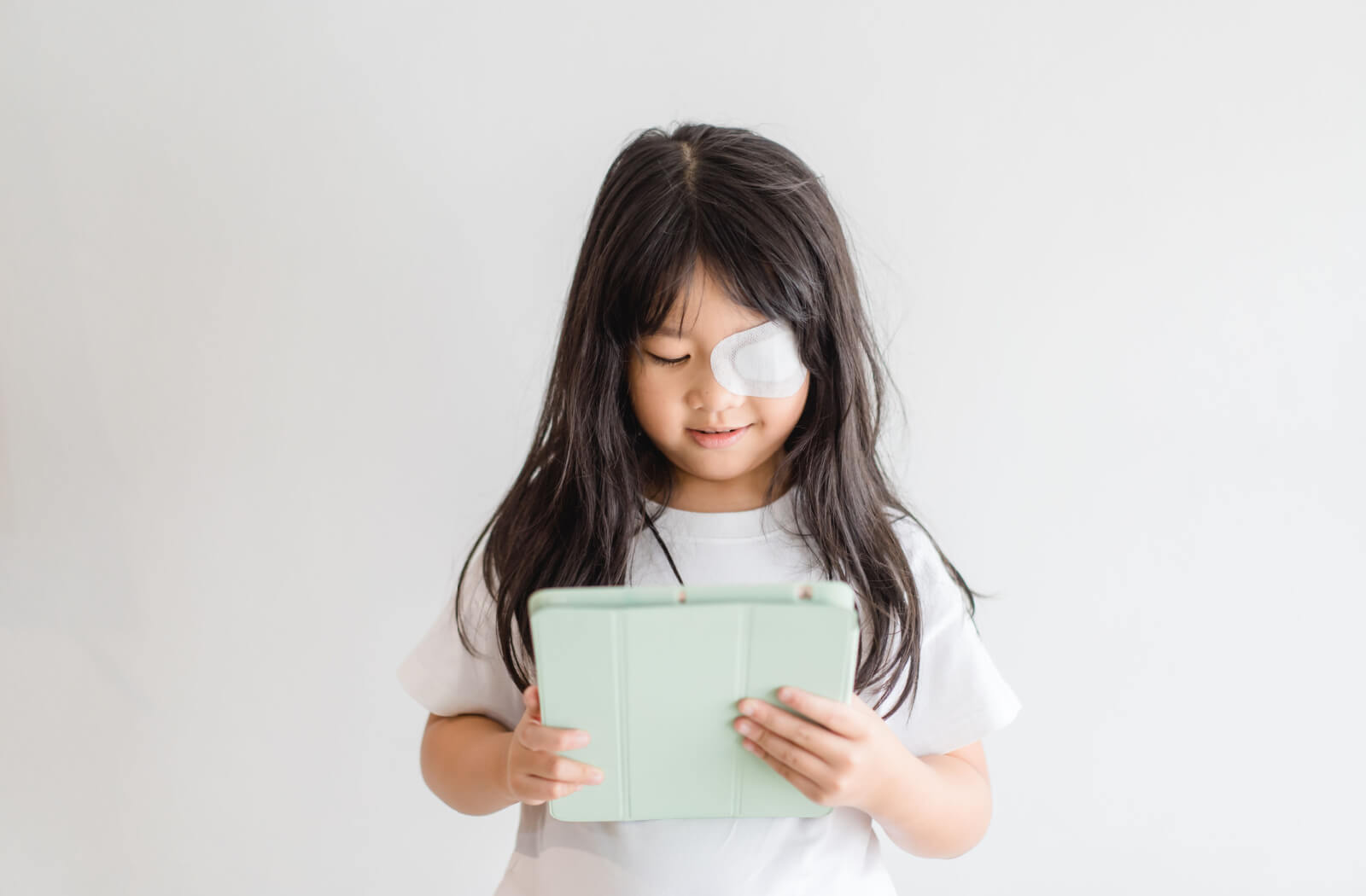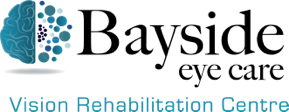Vision therapy aims to strengthen the connection between the eyes and brain and improve your visual skills. Vision therapy is designed by a trained optometrist or vision therapist to suit your specific needs—but what conditions exactly can vision therapy treat?
Vision therapy can be an excellent way to address problems caused by lazy eye or eye misalignment. But it can also help with double vision, problems with poor depth perception, and difficulty tracking moving objects. It can also help those who have a concussion or learning disabilities.
What Is Vision Therapy?
Vision therapy, sometimes called vision training, is a specialized form of therapy for your eyes. Through a custom-tailored plan designed by an optometrist or trained vision therapist, you undergo a series of exercises and activities.
The main goal of vision therapy is to train your eyes and brain to work together more effectively. This can be particularly useful if you have difficulties with:
- Eye coordination
- Focusing your eyes
- Tracking moving objects
- Depth perception
Since these issues can impact your daily life, vision therapy aims to help your eyes overcome these challenges. It can help you read, write, and drive better and even help athletes improve their visual skills.
How Does Vision Therapy Work?
During a vision therapy session, you’ll engage in a series of personalized exercises and activities, all aiming to improve one or more aspects of your visual skills. They aim to:
- Improve your control over the movements of your eyes.
- Strengthen the muscles in and around the eyes.
- Enhance communication between the eyes and brain by training them to work together properly.
- Improve your ability to process visual information.
However, treatment changes from person to person, as every eye is different and has its own unique needs. Before beginning any treatment, an optometrist or trained therapist will perform a thorough assessment of your visual abilities. They’ll determine your strengths and weaknesses before designing a plan to help you.

What Conditions Can Be Treated with Vision Therapy?
Vision therapy is a non-surgical and non-invasive approach to addressing problems with your visual skills. The eyes and the brain work together in close communication, but when errors occur with this system, it can lead to difficulties seeing your environment clearly—or problems processing this visual information.
Vision therapy can be particularly beneficial for people with:
- Double vision
- Amblyopia (a lazy eye)
- Difficulty maintaining clear vision when switching between nearby and far away objects
- Poor reading comprehension, or a habit of skipping words or losing their place while reading
- Strabismus (misaligned eyes)
Vision therapy can also help children who have difficulty with spatial awareness—recognizing where their body is and how close nearby objects are—and kids who have trouble with eye teaming—the ability to track a moving object or follow something linear like a line of text without interruption.
Can Vision Therapy Help Concussions?
Vision therapy can also be beneficial for people who have recently experienced a concussion. Concussions often cause visual disturbances, such as:
- Double vision
- Blurry vision
- Dizziness or vertigo
- Headaches or migraines
They can even directly cause problems with your spatial awareness and ability to stay balanced. Vision therapy can often help you regain these skills to return your vision to normal.
Can Vision Therapy Help with Academic Performance?
Did you know roughly 80% of a child’s learning is vision-based? Children with vision problems who can’t see or process the visual information they’re taking in can struggle with school and sports.
Many types of vision problems in young children can be treated with vision therapy. While these programs can’t help children suddenly understand complex topics, they can help children improve academically by giving them the tools they need to have a better chance of succeeding.
Most school-related tasks involve reading, writing, drawing, or following something with your eyes. When your child has difficulties processing this visual information, it can lead to frustration, tiredness, or apathy. When children can’t fully interpret and understand what they should be focusing on, it can often seem like they don’t care. But in reality, it’s often due to an obstacle in their way—like a vision problem.
Whether this is a problem with depth perception causing them to have difficulty focusing on a board in the front of the room or an inability to switch between nearby and far vision, these problems can stand in the way of a child’s education.
Vision therapy aims to train the eyes to work together properly, removing these barriers and allowing children the opportunities they deserve to learn, play, and enjoy life to the fullest.
Vision Therapy in Ontario
At Bayside Eye Care, we believe all kids should have the chance to see their world clearly. Whether your child is experiencing double vision, blurry vision, or issues with depth perception, we’re here to help. Book an appointment with us today to take the first step in your vision therapy journey.



